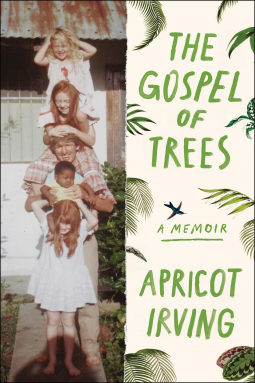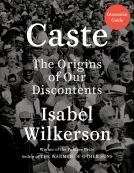
The Gospel of Trees
A Memoir
by Apricot Irving
This title was previously available on NetGalley and is now archived.
Send NetGalley books directly to your Kindle or Kindle app
1
To read on a Kindle or Kindle app, please add kindle@netgalley.com as an approved email address to receive files in your Amazon account. Click here for step-by-step instructions.
2
Also find your Kindle email address within your Amazon account, and enter it here.
Pub Date Mar 06 2018 | Archive Date Jan 12 2024
Description
Apricot Irving grew up as a missionary’s daughter in Haiti—a country easy to sensationalize but difficult to understand. Her father was an agronomist, a man who hiked alone into the hills with a macouti of seeds to preach the gospel of trees in a deforested but resilient country. Her mother and sisters, meanwhile, spent most of their days in the confines of the hospital compound they called home. As a child, this felt like paradise to Irving; as a teenager, the same setting felt like a prison. Outside of the walls of the missionary enclave, Haiti was a tumult of bugle-call bus horns and bicycles that jangled over hard-packed dirt, the clamor of chickens and cicadas, the sudden, insistent clatter of rain as it hammered across tin roofs and the swell of voices running ahead of the storm.
As she emerges into womanhood, an already confusing process made all the more complicated by Christianity’s demands, Irving struggles to understand her father’s choices. His unswerving commitment to his mission, and the anger and despair that followed failed enterprises, threatened to splinter his family.
Beautiful, poignant, and explosive, The Gospel of Trees is the story of a family crushed by ideals, and restored to kindness by honesty. Told against the backdrop of Haiti’s long history of intervention—often unwelcome—it grapples with the complicated legacy of those who wish to improve the world. Drawing from family letters, cassette tapes, journals, and interviews, it is an exploration of missionary culpability and idealism, told from within.
Available Editions
| EDITION | Other Format |
| ISBN | 9781451690453 |
| PRICE | $26.00 (USD) |
| PAGES | 384 |
Available on NetGalley
Average rating from 17 members
Featured Reviews
 Jeremy R, Reviewer
Jeremy R, Reviewer
This is a complicated memoir. Much of the book is depressing and disheartening, but I encourage readers to stick with the book. The missionaries and foreign aid workers were often paternalistic and prejudiced. The reader will probably dislike many of the main characters at times -- including the author and her parents. Even those who meant well often did not trust the Haitian people to properly manage projects. Dr. Hodges, who ran the mission hospital, spent decades healing the sick and wounded, saving thousands of lives in the process. His family adopted some of the orphaned children and treated them the same as the biological children. He was fascinated by Haitian history and even created a historical museum. He helped train Haitian medical staff. However, he and his family insisted they had to run the hospital -- no matter how educated or dedicated, no Haitian would ever be capable of overseeing the hospital; he was convinced that without him, the hospital would collapse. Most of the foreigners made little effort to really get to know the local population outside of the Haitians that worked for the missionary hospital, school, agricultural center, etc. The people that the author's family and the other missionaries were trying to help were often poor and hungry, which made them understandably short-sighted. The author's father wanted to reforest Haiti and started multiple projects to plant large amounts of trees and get local farmers to recognize the importance of trees, as the trees would help strengthen the soil, producing better crops, and help reduce or prevent soil erosion, which was a major problem. However, faced with hunger and other needs, many of the locals would cut down the trees for firewood and charcoal, which they could sell. When the next big rain came or the next hurricane or earthquake hit, homes, fields, and lives were lost in mudslides.
The most depressing part of the book deals with the aftermath of the 2010 earthquake and the failed efforts of the UN and other foreign aid organizations, which often went about recovery efforts in the worst way possible -- not involving the Haitian people in decisions about recovery efforts; shipping in large quantities of foreign donations or purchasing from foreign countries/companies items (food, furniture, etc.) that local farmers or artisans were capable of providing/producing, which meant that the local economy was not stimulated; focusing on projects that would satisfy major donors or would make for good optics (and cutting off assistance to local organizations that would fall into line).
The author and her family, especially her parents, had a dysfunctional and at times very turbulent relationship during the years they were serving in Haiti and the years in between their time in Haiti. The author and her father were both stubborn and opinionated and did not communicate with others in the healthiest way. It has taken years and writing this book for the relationship to start to repair.
My favorite person in the book is probably Zo, who spent a lifetime working to reforest parts of Haiti and not letting obstacles deter him. He loved the land and the trees and he knew that if given the opportunity, the earth could reawaken and the land and trees thrive.
While much of life in Haiti is still bleak and dismal, especially when viewed through Western eyes, the author, as she explores and comes to terms with her relationship with Haiti, especially during her visits back as an adult, describes the beauty of Haiti -- both the natural beauty, as well as the beauty and quiet dignity of the Haitian people. She also discusses what can happen when foreigners actually listen to and uplift Haitians. When she returned to Haiti to report on the earthquake recovery for This American Life, she met up with Dr. Steve James, who had worked at the mission hospital and briefly oversaw it after Dr. Hodges died. He did not like that experience and he instead began working in small clinics where a sense of community was fostered between the staff and there was more participation in decision-making. The dentist at one small clinic was able to do major reconstructive dental work because Haitians, utilizing what was available to make what was needed, had constructed a pressurized drill and water spray operated by a bicycle pump. Dr. James commented to the author that the past few years had been the best years of his time in Haiti because he had gotten to witness and participate in the resourcefulness, resilience, and strength of the Haitian people in solving their own problems. That is a good lesson for all of us, especially when it comes to foreign aid or even aiding local communities other than our own -- we need to utilize the strengths, abilities, and knowledge of the native/local population, providing assistance as needed, but remembering that these people survived for hundreds, sometimes thousands, of years without us (where "us" is often Westerners), will continue to survive after we are gone, and likely have things they could teach us and that we would benefit from learning.
I am glad I had the opportunity to read a copy of the e-book via NetGalley.


















